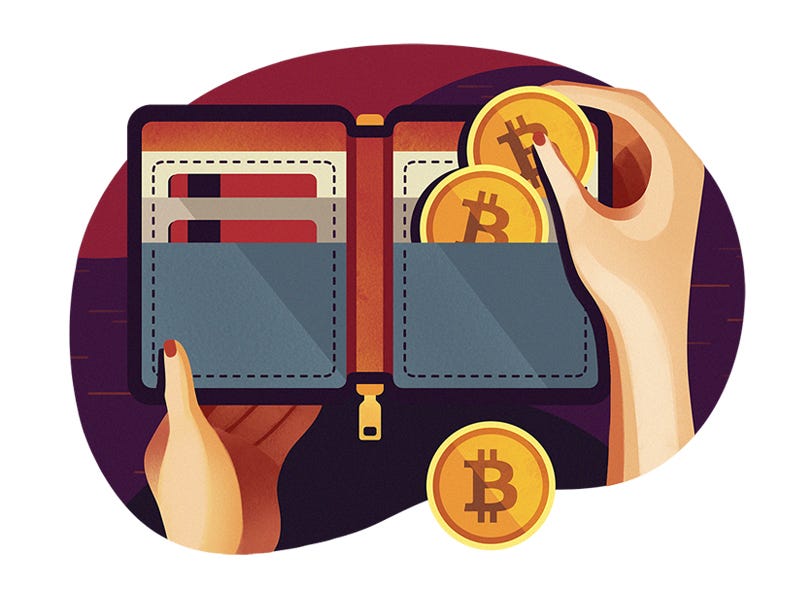The Future of Gaming: Exploring Proof of Stake's Potential
Written on
Chapter 1: Introduction to Proof of Stake
The Proof of Stake (PoS) cryptocurrency algorithm could revolutionize the gaming sector, creating exciting new interactions within the captivating realms of gaming. In this article, I delve into how this innovative cryptocurrency technology may integrate into various gaming systems and player-driven economies in the coming years.
Disclaimer: I hold Bitcoin in my investment portfolio and have no immediate plans to buy or sell any cryptocurrencies within 72 hours of publication.
As a gamer, you’ve probably encountered cryptocurrency's influence at some point. For PC gamers, obtaining the latest graphics cards has become increasingly challenging due to cryptocurrency miners swiftly acquiring them. This situation is further complicated by scalpers who take advantage of limited initial inventory during new GPU launches.
Earlier this month, I published a foundational piece on NFTs in gaming. If you’re unfamiliar with NFTs or their potential applications in the gaming realm, I highly recommend reading that article first as it lays the groundwork for the concepts discussed here.
NFTs in Gaming: A Trend on the Rise
NFTs are poised to make a significant impact in the gaming industry. Unsure about what NFTs are? Don’t worry, I’ll explain...
Chapter 2: The Challenges of Proof of Work
Before we delve into Proof of Stake and its implications for gaming, it’s essential to address some of the shortcomings of its counterpart, the Proof of Work (PoW) system.
Widely-used cryptocurrencies like Bitcoin and Ethereum rely on the PoW algorithm. In this model, miners offer computational power to the decentralized network and receive new bitcoins as a reward. This process is resource-intensive and continues to become more challenging.
“A single transaction of bitcoin has the same carbon footprint as 680,000 Visa transactions or 51,210 hours of watching YouTube.”
— The Guardian, February 2021.
As mining rewards decrease, the computational resources dedicated to maintaining the network are likely to increase, especially as the currency gains value. A recent report from The Guardian indicates that the energy consumption of Bitcoin's network is comparable to that of a medium-sized country, with much of it stemming from regions like China that rely heavily on coal.
A Bitcoin transaction generates the same carbon footprint as 680,000 Visa transactions, and with over 300,000 daily transactions on the Bitcoin network, the environmental impact is substantial. In fact, daily Bitcoin transactions contribute to the same carbon footprint as 204 billion Visa transactions, even though only about 150 million Visa transactions occur daily—illustrating the immense scale of Bitcoin's environmental footprint.
Ethereum, similarly, is growing and also relies on a PoW algorithm to sustain its extensive network. When considering Bitcoin and other popular PoW cryptocurrencies, it’s clear that the environmental implications are concerning.

Despite arguments from Bitcoin and Ethereum supporters that the advantages of cryptocurrency outweigh its environmental costs, the debate continues.
While most NFTs are built on Ethereum, other cryptocurrencies that do not utilize the PoW model can also support them. This alternative, more eco-friendly framework could have significant implications for the gaming industry.
Chapter 3: Understanding Proof of Stake
What is Proof of Stake (PoS)?
Proof of Stake is a consensus mechanism that aims to maintain a decentralized network while eliminating the need for energy-intensive mining. Instead of relying on proof of work, PoS allows miners to validate transactions based on the quantity of cryptocurrency they hold.
In a PoS system, consensus is reached among all holders of the cryptocurrency, and participants earn a fixed percentage by ‘staking’ their coins. This model resembles earning interest in traditional banking; the more coins you hold, the more you earn, albeit at the same rate across the board.
The outcome is a decentralized network that exerts significantly less environmental strain.
The Advantages of Proof of Stake in Gaming
Proof of Stake could lead to transformative changes in the gaming landscape. Here are some potential advantages of implementing and adopting this system:
- Decentralized Currency Minting: PoS cryptocurrency could facilitate the distribution of in-game currencies to players, allowing developers to integrate cryptocurrency directly into their games. This approach would not only legitimize the currency’s blockchain but also provide a direct sales avenue for developers and publishers.
- Enhanced Player Engagement: The PoS model can be adjusted to grant players greater staking power or to increase their chances of staking based on the time they spend playing supported games. However, it would be crucial to design this system to prevent players from simply leaving their characters idle in-game.
- Ecosystem Support: A PoS framework could enable multiple games from the same publisher or an entire gaming ecosystem. Players would gain more control over their currency, while developers would still have mechanisms to influence and profit from cryptocurrency usage.
- Reduced Transaction Fees: By integrating cryptocurrency into games, publishers could minimize credit card transaction fees. Major stakers (publisher wallets with significant balances) could earn a small percentage from each transaction, allowing them to profit from player-to-player interactions within the cryptocurrency framework.

Developers could restrict prime-staking status to their wallets, but providing players or significant investors with similar opportunities could create an intriguing dynamic for supporting both publishers and the cryptocurrency that underpins their games.
If publishers become overly greedy with transaction fees, it could negatively affect players’ interests and harm the reputation of both the cryptocurrency and the developers. Ideally, this model would be structured to benefit both parties equally.
- Player Autonomy and Currency Value: As I discussed in my NFT article, cryptocurrency is fundamentally decentralized. Players would maintain full control over their crypto, and third-party markets could help regulate the currency’s value, fostering stability and encouraging player engagement across supported titles.
In a perfect scenario, players could even use the cryptocurrency for subscription fees or new game purchases, maximizing their control and agency.
Potential Drawbacks of Proof of Stake
However, the Proof of Stake algorithm is less established than Proof of Work. Critics raise concerns about a potential "nothing-at-stake" issue, where miners might have little to lose by endorsing various (possibly fraudulent) blockchain histories created by malicious actors. While these worries are not yet substantiated, they remain a consideration despite PoS’s many strengths.
In gaming, the effectiveness of the PoS model relies heavily on the game systems and economies it supports. Game mechanics or economic structures could hinder or even derail the successful implementation of cryptocurrency.
Tax implications also pose challenges when an in-game currency holds real-world value. In the United States, the IRS treats cryptocurrency mining as a taxable event:
“If you earn cryptocurrency by mining it, or receive it as a promotion or as payment for goods or services, it counts as part of your regular taxable income.”
— IRS
With a 'mining-by-playing' model, players might write off the costs associated with their gaming hardware and electricity against any realized taxable gains. The concept of cryptocurrency-supported gaming is intriguing, and it’s fascinating to consider the regulatory changes that might arise if it becomes mainstream.
Furthermore, the learning curve associated with cryptocurrency could deter new players. Publishers will need to establish norms and offer support to onboard users unfamiliar with cryptocurrency. As the technology becomes more prevalent, this challenge may diminish. Players must be educated on usage and potential financial or tax implications, with options for minors to opt-out entirely.
Ultimately, further testing and large-scale deployments of PoS are essential to validate its superiority over PoW in cryptocurrency and broader blockchain applications.
As for gaming, the potential of NFTs and the Proof of Stake algorithm is boundless. We can only anticipate how the intersection of gaming and cryptocurrency will evolve as technology advances rapidly.
To stay updated on my writings, feel free to follow me and SUPERJUMP on Medium.
What are your thoughts on NFTs or the role of cryptocurrency in video games? Share your insights in the comments below!
